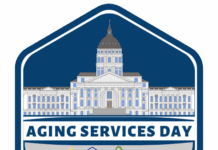 LeadingAge National is interested in receiving member input on the HHS federal proposed conscience protection rule. Comments are due to HHS on March 27th. In order to be considered for incorporation in LeadingAge’s comments, member input should be directed to Jennifer Hilliard no later than March 14th. Here is Jennifer’s summary of the proposed rule:
LeadingAge National is interested in receiving member input on the HHS federal proposed conscience protection rule. Comments are due to HHS on March 27th. In order to be considered for incorporation in LeadingAge’s comments, member input should be directed to Jennifer Hilliard no later than March 14th. Here is Jennifer’s summary of the proposed rule:
In a proposed rule published in today’s Federal Register, the U.S. Health and Human Services Department (HHS) seeks to delegate to its Office for Civil Rights (OCR) responsibility for effectuating existing statutory conscience rights in health care settings through outreach, technical assistance, compliance reviews, complaint investigations and various enforcement tools.
As noted above, the regulation does not purport to institute new conscience protections for providers or individuals but rather would consolidate compliance and enforcement efforts with respect to existing statutory protections within the OCR.
While much of the proposed rule concerns conscience protections related to the provision of, or referral to, abortion services, there are provisions with applicability in the aging services field. Specifically, proposed Section 88.3 contains the following applicable requirements and prohibitions:
- Section 88.3(e)(2), relating to Section 1553 (Assisted Suicide) of the Patient Protection and Affordable Care Act (ACA), prohibits a range of entities, including providers, from subjecting an individual or institutional health care entity to discrimination on the basis that the entity does not provide any health care item or service furnished for the purpose of causing, or for the purpose of assisting in causing, the death of any individual, such as by assisted suicide, euthanasia, or mercy killing; provided that nothing in this paragraph shall be construed to apply to, or to affect, any limitation relating to:
- The withholding or withdrawing of medical treatment or medical care;
- The withholding or withdrawing of nutrition or hydration;
- Abortion; or
- The use of an item, good, benefit or service furnished for the purpose of alleviating pain or discomfort, even if such use may increase the risk of death, so long as such item, good, benefit, or service is not also furnished for the purpose of causing, or the purpose of assisting in causing, death, for any reason.
- Section 88.3(i)(2), relating to 42 U.S.C. Sections 1395cc(f), 1396a(w)(3), and 14406 (Advanced Directives), prohibits HHS and State agencies administering Medicaid programs from:
- Construing 42 U.S.C. Sections 1395cc(f) or 1396a(w) to require any provider or organization, or any employee of such a provider or organization, to inform or counsel any individual regarding any right to obtain an item or service furnished for the purpose of causing, or the purpose of assisting in causing, the death of the individual, such as by assisted suicide, euthanasia, or mercy killing; or to apply to or affect any requirement with respect to a portion of an advance directive that directs the purposeful causing of, or the purposeful assisting in causing, the death of any individual, such as by the aforementioned means.
- Construing 42 U.S.C. Section 1396a to prohibit the application of any applicable State law which allows for any objection on the basis of conscience for any health care provider or agent of such provider, which as a matter of conscience cannot implement an advance directive.
- Section 88.3(m)(2), relating to Medical Screening, Examination, Diagnosis, Treatment, or Other Health Care or Services under 42 U.S.C. Section 1396f, prohibits HHS from construing 42 U.S.C. Section 1396 to require a State Medicaid agency to compel any person to undergo any medical screening, examination, diagnosis, treatment or to accept any other health care or services provided under such plan for any purpose (other than for the purpose of discovering and preventing the spread of infection or contagious disease or for the purpose of protecting environmental health), if such person objects thereto on religious grounds.
- Section 88.3(n)(2), relating to Occupational Illness Examinations and Tests required under 29 U.S.C. 669(a)(5) as part of any research and related activities undertaken by HHS, provides that neither HHS nor any recipient of grants or contracts under 29 U.S.C. Section 669. Shall deem any provision of 29 U.S.C. Section 651 et seq. to authorize or require medical examination, immunization or treatment, as provided under 29 U.S.C. Section 669, for those who object thereto on religious grounds, except where such is necessary for the protection of the health or safety of others.
- Section 88.3(q), pertaining to religious nonmedical health care and applicable to HHS, State Medicaid agencies, entities receiving Federal financial assistance from a Social Services Block Grant or Elder Justice Block Grant, shall not:
- Pursuant to 42 U.S.C. Section 1397j-1(b), interfere with or abridge an elder’s right to practice his or her religion through reliance on prayer alone for healing when this choice:
- Is contemporaneously expressed, either orally or in writing, with respect to a specific illness or injury which the elder has at the time of the decision and where the elder is competent at the time of the decision’
- Is previously set forth in a living will, health care proxy, or other advance directive document that is validly executed and applied under State law; or
- May unambiguously deduced from the elder’s life history.
- Pursuant to 42 U.S.C. Section 1395i-5, prohibit post-hospital extended care services furnished an individual in a religious nonmedical health care institution or home health services furnished an individual by a religious nonmedical health care institution if an individual makes an election providing that:
- Such individual is conscientiously opposed to acceptance of convention or unconventional medical items and services (including any medical screening, examination, diagnosis, prognosis, treatment, or the administration of drugs); and
- Acceptance of such medical treatment would be inconsistent with such individual’s sincere religious beliefs.
- Pursuant to 42 U.S.C. Section 1397j-1(b), interfere with or abridge an elder’s right to practice his or her religion through reliance on prayer alone for healing when this choice:
Additional provisions of the proposed regulation:
- Section 88.4 requires those subject to the requirements, with limited exceptions, to provide written assurances and certification of compliance as a condition of the approval, renewal or extension of any Federal financial assistance or Federal funds, which is binding upon the applicant or recipient, its successors, assigns or transferees for the period during which such Federal assistance or Federal funds are provided.
- Section 88.5 requires those subject to the requirements to post a notice describing the conscience protections and associated anti-discrimination laws on the organization’s website and in a prominent and conspicuous location where notices to the public and the organization’s workforce are customarily posted. The text of the notice is prescribed by Appendix A to the proposed rule.
- Section 88.6 prescribes certain compliance requirements with respect to maintaining complete and accurate records evidencing compliance with the regulation, cooperating with OCR, reporting in the event of an OCR compliance review, investigation, or complaint, and refraining from intimidating or retaliatory acts.
- Section 88.7 details OCR’s enforcement authority and governs complaints.
- OCR would have the authority to receive and handle complaints, initiate compliance reviews, conduct investigations, supervise and coordinate compliance within HHS, make enforcement referrals to the Department of Justice, and take other appropriate remedial action as allowed by law.
- Complaints may be filed with OCR by an entity, health care entity, or any person (individually, as a member of a class, on behalf of others, or on behalf of an entity) alleging violation of the conscience/anti-discrimination protections. The complainant need not be one whose rights under the conscience/anti-discrimination protections allegedly have been violated.
- Remedies for violations confirmed by an OCR investigation or compliance review include:
- Informal resolution whenever possible
- Temporarily withholding cash payments
- Denying use of Federal financial assistance or other Federal funds
- Wholly or partly suspending award activities
- Terminating Federal financial assistance or other Federal funds, in whole or in part
- Withholding new Federal financial assistance or other Federal funds from HHS, in whole or in part
- Referring the matter to the DOJ for further proceedings
- Other remedies legally available
- Section 88.8 states that the proposed rule shall not preempt any Federal, State or local law that is equally or more protective of religious freedom and moral convictions.
- Section 88.9 provides that the rule is to be construed in favor of a broad protection of free exercise of religious beliefs and moral convictions to the maximum extent permitted by the terms of Federal health care conscience and associated anti-discrimination statutes.
HHS is seeking input on a host of issues with respect to the proposed rule, including due process rights for alleged violators and burden to providers and others. LeadingAge encourages members to review the proposed regulation and submit comments either individually via the Regulations.gov website or to LeadingAge for consideration in our organizational comments.




